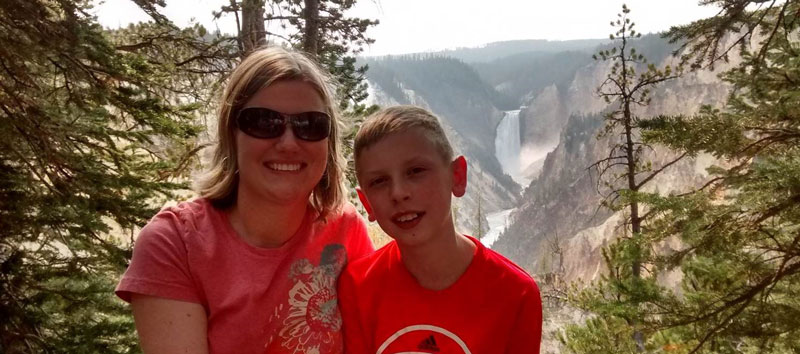
Allison Naleway, PhD, is an epidemiologist here at the Kaiser Permanente Center for Health Research, where her research focuses on the evaluation of vaccine safety and effectiveness and the surveillance of vaccine-preventable and other infectious diseases. Naleway is the site Principal Investigator for the Vaccine Safety Datalink and leads the VSD pregnancy working group. She has collaborated with the Centers for Disease Control and Prevention (CDC) on studies to assess the effectiveness of influenza vaccination during pregnancy, influenza vaccine choice and effectiveness in health care workers, and the early effect of human papillomavirus vaccination on HPV-related outcomes.
 Allison Naleway, PhD
Allison Naleway, PhD
What motivates you?
Vaccines are some of the most effective public health tools we have for disease prevention. In recent years, we have seen a resurgence in vaccine-preventable diseases including measles and pertussis (whooping cough) because more people are either delaying or refusing vaccines for themselves or for their children. People frequently cite concerns about the safety and effectiveness of vaccines as a reason for declining vaccination. Vaccines have become such a polarizing issue in our society and our politics, and there is so much misinformation about vaccines living on social media sites. I hope our continued scientific work can contribute to offsetting some of those trends.
Given your area of expertise, what should people know about their health that you don’t think they know?
It breaks my heart to hear stories of people needlessly suffering from vaccine-preventable illnesses, like the recent story of a child from my own community who was hospitalized for weeks with a serious tetanus infection. My team and I are motivated to conduct rigorous studies of vaccine safety and effectiveness, and to communicate these findings to policy makers, healthcare providers, and the public so that we can all work together to reduce the burden of these illnesses in our communities and keep people healthy …
What makes KP a good place to do vaccine research?
Kaiser Permanente is a great place to conduct vaccine safety research. In fact, we have been doing it since the early 1990s as part of the Vaccine Safety Datalink project. We are able to combine our rich, comprehensive electronic health records data across regions to look at patterns of possible vaccine-adverse events in millions of people. This gives us the ability to look at rare potential side effects that were not recognized or could not be studied in clinical trials. We also get to look at the real-world experience in special populations, such as pregnant women, who are frequently excluded from clinical trials.
Which projects have excited you most?
One of the projects that has excited me the most was the Dental Adolescent Immunization Study (DAIS). The goal of this study was to increase adolescent vaccination rates by encouraging dental providers to recommend vaccinations to their patients or their parents. One of the challenges to vaccinating adolescents is that they have less frequent medical clinic visits than younger children.
In the Oregon and Southwest Washington region, we were fortunate to be able to work with our dental providers on this important study. We provided them with some education and communication tools to make vaccine recommendations to these hard-to-reach adolescent patients. This study supported our region’s goal of medical-dental integration and Kaiser Permanente’s commitment to total health. Several dental clinics in the region have now gone beyond the scope of the study - making vaccine recommendations - and have actually embedded nurses to administer needed vaccinations to patients when they come in for dental care.
In your free time, what do you like to do? In my free time, I like to work in my garden, swim, golf, and enjoy the region’s beautiful natural areas. I also like to relax with a good book and a cup of tea.